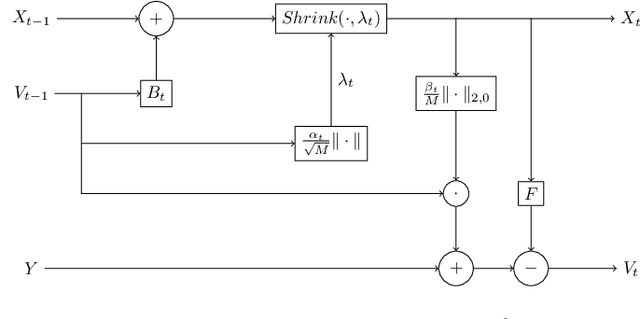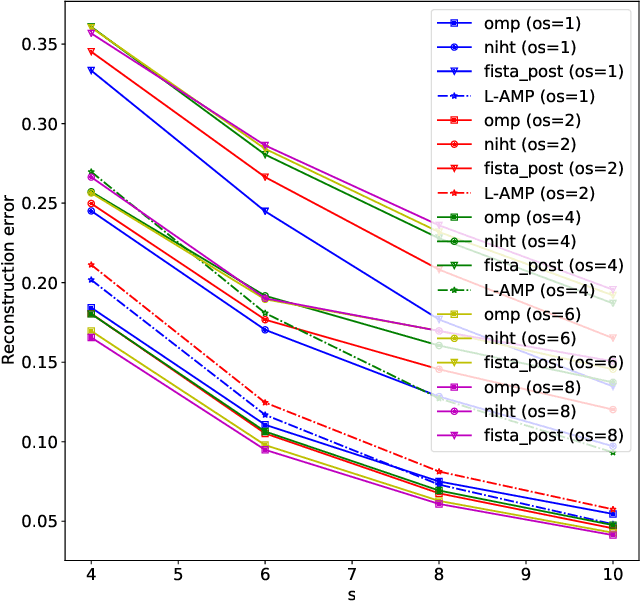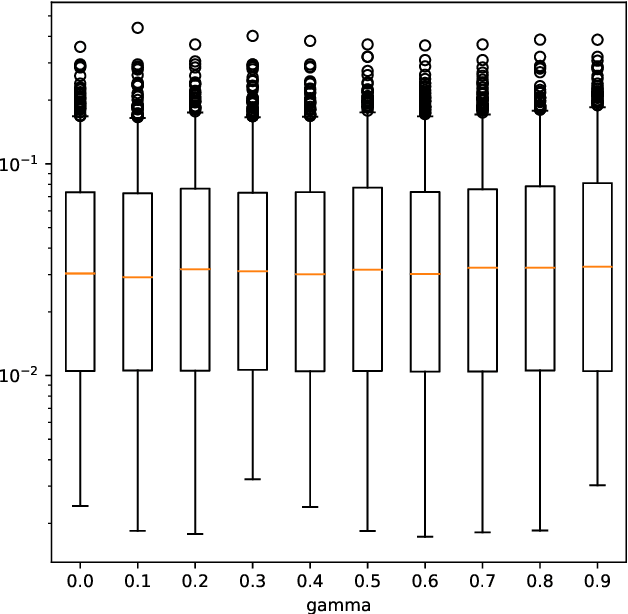Explicit CSI Feedback Compression via Learned Approximate Message Passing
Paper and Code
Oct 12, 2021


Explicit channel state information at the transmitter side is helpful to improve downlink precoding performance for multi-user MIMO systems. In order to reduce feedback signalling overhead, compression of Channel State Information (CSI) is essential. In this work different low complexity compressed sensing algorithms are compared in the context of an explicit CSI feedback scheme for 5G new radio. A neural network approach, based on learned approximate message passing for the computation of row-sparse solutions to matrix-valued compressed sensing problems is introduced. Due to extensive weight sharing, it shares the low memory footprint and fast evaluation of the forward pass with few iterations of a first order iterative algorithm. Furthermore it can be trained on purely synthetic data prior to deployment. Its performance in the explicit CSI feedback application is evaluated, and its key benefits in terms of computational complexity savings are discussed.
 Add to Chrome
Add to Chrome Add to Firefox
Add to Firefox Add to Edge
Add to Edge